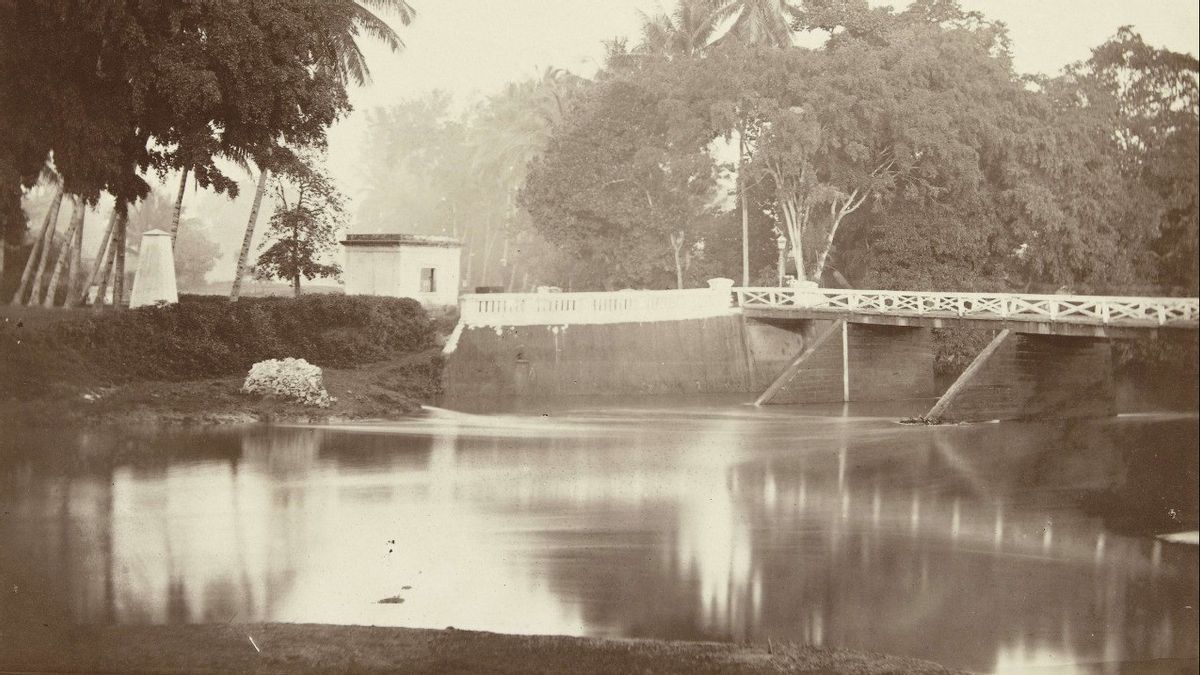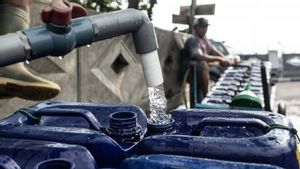JAKARTA - Normally, people who live in tropical countries like Indonesia, of course, take advantage of the shower moment to clean themselves while refreshing themselves in the morning. This is done as an activity opening and the afternoon as a closing activity.
There are also many problems with the benefits of bathing in general, such as being able to overcome body odor and feeling sticky in the body. If it is not done, it could be that the spirit and concentration will be slightly disturbed by the owner of the body, or other people who are made dizzy because they have not or rarely showered.
Regarding specific benefits, such as maintaining the circulatory system, smoothing the digestive system, and of course maintaining the mood too, of course, are obtained. Therefore, bathing is a must for people in the tropics. However, this was not the case for the former Vereenigde Oostindische Compagnie (VOC) soldiers.
The Company rarely takes a shower
Quoted from Jean Gelman Taylor in the book Social Life in Batavia, he revealed that Europeans who came to Batavia would definitely find it strange that the habit of bathing twice a day that is usually done by local residents, especially the habit of bathing on the banks of the canal by the native Batavia.
In the past, it was often seen in the canals of women and men of various ages soaking and refreshing themselves with dirty brown water. Obviously, this sight made them Dutch people feel ashamed to see it because it seemed to them far from the norm of modesty. Especially if it happens to the canals in Amsterdam. Uniquely, in Batavia, it followed the norm of politeness too far and was considered mediocre.
“They are embarrassed by the sight of the wives and mistresses bathing in the Ciliwung river. Moreover, the houses in old Batavia had baths built on the banks of the canals, with closed rooms for changing clothes and stairs that led to the water, ”said Jean Gelman Taylor.
Unlike Jean Gelman Taylor, Alwi Shahab actually caught the oddity not from the local population, but from the Dutch themselves.
In his book Batavia, the Ghost City, he discusses Jan Pieterzoon Coen building Batavia, following his longing for his hometown, so he imitates the city of Amsterdam by building dozens of canals that are synonymous with abundant water. In fact, this is what led many of them - tourists - who came at that time to call Batavia the Venice of the East. Strangely, they - the company - rarely even bathed.
He revealed: “Even though water was abundant in Batavia, the Company soldiers who came from the Netherlands were very afraid of water and rarely showered. This is in accordance with the custom in a cold country with a cold climate. In fact, people in tropical climates bathe twice a day. "
Related to this phenomenon, the governor general at that time - in 1775 - issued a decree (SK) which insisted Soldadoe Garnizun take a bath once a week. This further emphasizes that the culture of rarely bathing is ingrained for them, Europeans, because the governor-general must force the problem of bathing through his decree.
"We can imagine how the people of the Company would smell if they showered only once a week. It is not known whether in the 17th and 18th centuries there were already towels to clean the body, considering that they showered once a week. There was no soap at that time. They only clean their bodies with a kind of stone with open pores, ”added Alwi Shahab.
Start Adapting
When entering the early 20th century, it seems that bathing two or three times a day has become a new experience for HCC Clockener Brousson - a Dutch soldier - according to what he tells in his book entitled Batavia Awal 20th Century.
He called the way of bathing in the Indies - Netherlands unusual for them Europeans; "For us Europeans at the bar, there is a large public bathroom, inside there is a cement tub filled with cold water."
In fact, he also explained the details of the bathing ritual in the Indies, which required everyone to go to a bath complete with sleeping pants and a kabaja - a kind of white short shirt - while carrying a piece of soap and a towel.
“After you take your clothes off, start taking a bucket of water from the tub and pouring it over your body. Continue to soap the body from head to toe. After that, flush again with water from the bucket 12 times until it is clean from soap, ”added HCC Clockener Brousson.
He covered this tradition of bathing with a towel while rubbing his body dry. Because it was such an interesting experience for him, he also wrote about bathing which he called the soaping and washing ceremony carried out in three times.
Namely, in the morning immediately after the wake-up sign is sounded. 11am after morning duty and 3pm after nap and before afternoon apple, most of the bathrooms are set some distance away.
Until finally he understood a little about the important benefits of the bathing ritual, “We finally understood why old soldiers in the Netherlands always kept their body and underwear clean. The routine of the army in the Indies used them to maintain cleanliness because they had no other choice. "
That was what happened when the Company still colonized Indonesia. If now there are still many relatives, playmates, or co-workers who rarely bathe, it is reasonable to suspect that - once again it is to be suspected - that the Company's blood is flowing profusely. If not heredity, then?
The English, Chinese, Japanese, Arabic, and French versions are automatically generated by the AI. So there may still be inaccuracies in translating, please always see Indonesian as our main language. (system supported by DigitalSiber.id)









